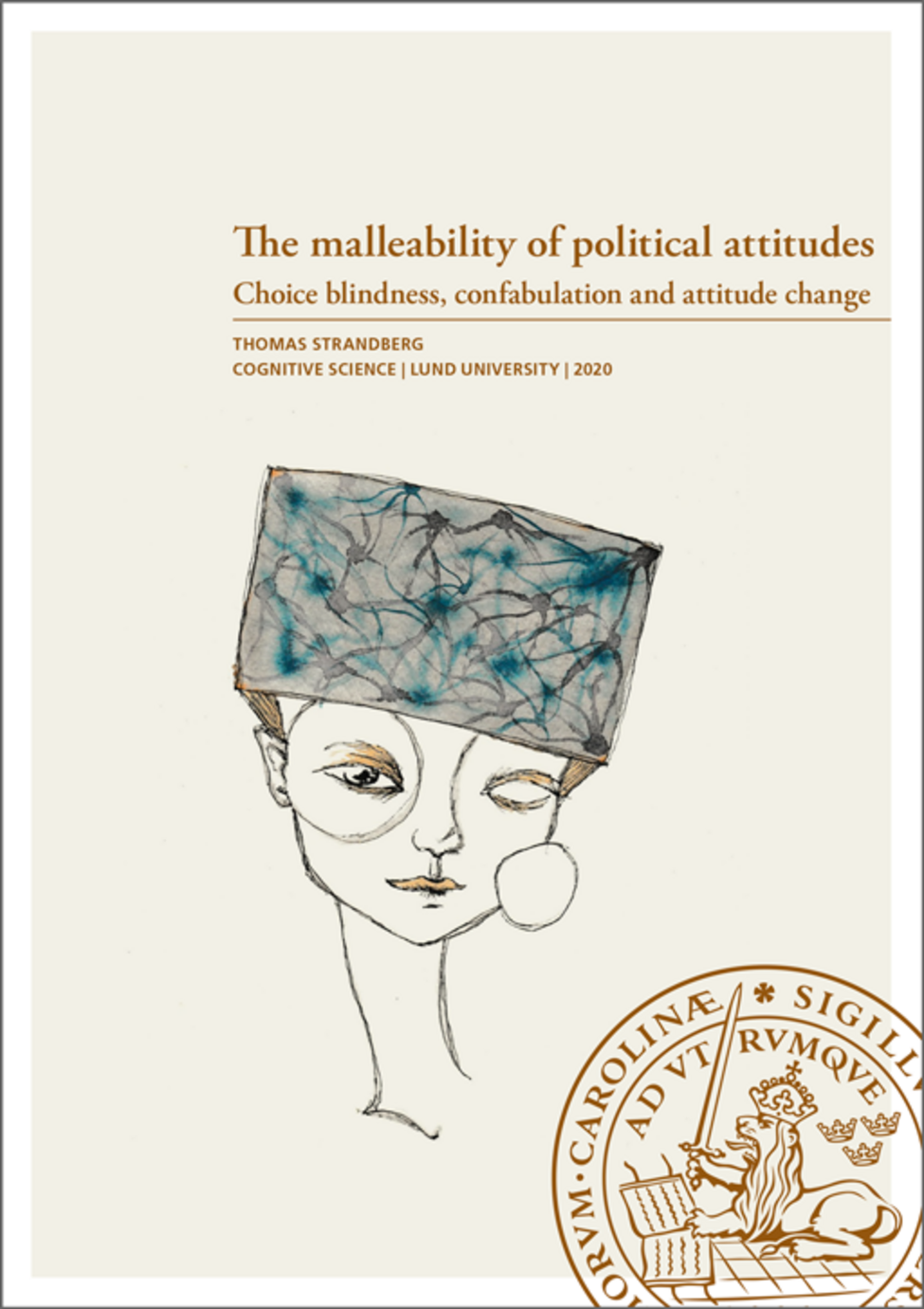https://portal.research.lu.se/portal/files/80023626/strandberg_thesis.pdfAt August 24:th, 2020, Thomas Strandberg successfully defended his PhD thesis The malleability of political attitudes: Choice blindness, confabulation and attitude change.
Opponent: Prof. Daniel Oppenheimer, Social and Decision Sciences, Dietrich College of Humanities and Social Sciences, Carnegie Mellon University.
>> Link to PhD thesis
Abstract:
This thesis is an empirical and theoretical investigation of choice blindness, in particular in the domain of political attitudes. Choice blindness is a cognitive phenomenon in which people do not notice dramatic mismatches between what they choose and what they get while still offering seemingly introspective arguments to explain their (putative) choice. In this thesis I demonstrate that the effect also applies to salient political attitudes and evaluations of political candidates. All studies took place in close connection to real elections, and I have developed new tools building of the underlying choice blindness methodology to collect the data. Further, I explore the potential downstream effects, such as influence on voting intentions, and lasting attitude changes. I also explore the potential mechanism behind this effect, and show that confabulatory reasoning plays an important part in facilitating the observed attitude changes.
This thesis comprises of four papers published in academic journals:Paper 1 is a proof-of-concept exploring if the choice blindness effect also applies to political attitudes and voting intentions. During the experiment we developed a novel survey methodology that allowed us to switch out peoples’ survey ratings and give false feedback about which political camp their survey score aligned with.
Paper 2 expanded on the findings from paper 1 and focused the 2016 U.S presidential election. That election was a heated affair, with Hillary Clinton and Donald Trump head-to-head in a tight race, and many worried that the US was becoming increasingly polarized and that too much of the debate focused on the candidates’ characters and not the political issues. We ran two experiments and demonstrated that we could get US citizens to express less polarized and more open-minded views about the two presidential candidates.
Paper 3 is my flagship paper in which I show that when participants falsely believe that they have stated some attitude, it can lead to lasting changes in those attitude. Further, the effect is much more accentuated if the participants also provide confabulating arguments of why they stated that attitude. These findings highlights the influential power of confabulation in facilitating changes in political attitudes.
Paper 4 is an exploratory effort to better understand and pinpoint what determines whether a manipulated trial is accepted or corrected, and how participants experience the correction.
- Kursutbud

